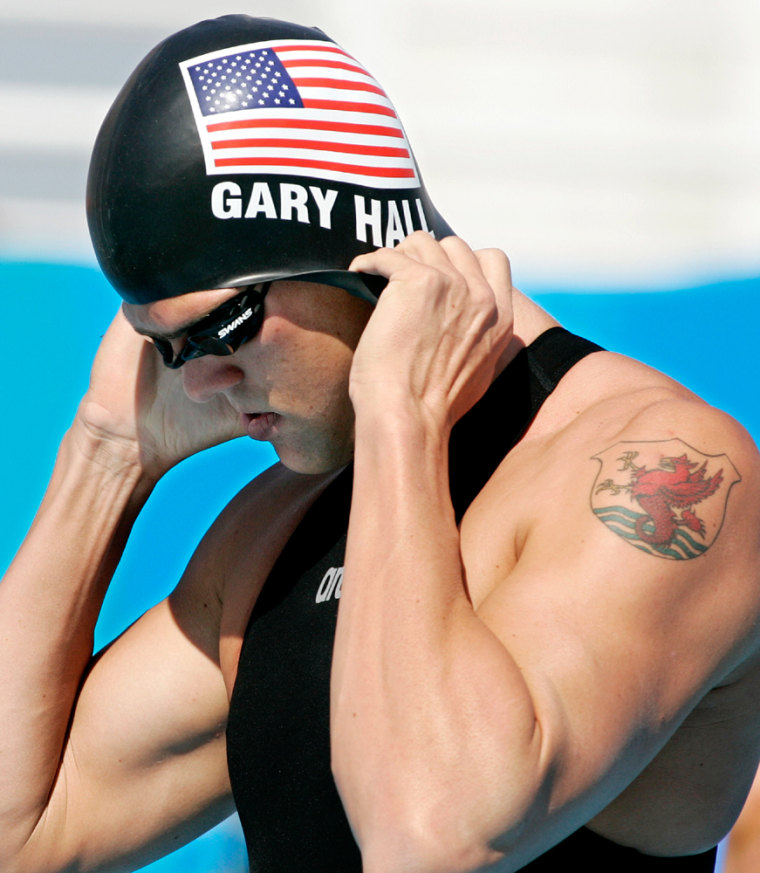Lugging a cinder block — a training discipline — may be the only thing that can slow Gary Hall, Jr., down.
He's always been known as fast and flamboyant — a skateboarding, spearfishing, bag-punching, rock-on swimmer dude.
It would all be stunts and posturing if Hall didn't also deliver the goods — eight Olympic medals so far. His signature race is one blistering length of the pool.
He won the 50 meter freestyle gold in Sydney, finishing in under 22 seconds, and earning bragging rights as the fastest American in the water.
"To win an Olympic gold medal — it was like nothing else that I've experienced in my life," says Hall.
His first Olympics was in Montreal. His father — a medallist in butterfly — carried him in triumph.
"Little did I know then that he was going to turn out to be one of the greatest swimmers in history," says dad, Dr. Gary Hall, Sr.
Gary Hall, Jr. and senior share the distinction of being the only father-son duo to compete in three Olympics each.
To see Gary, Jr. now, pushing himself to the limits, you'd think he's only vulnerable to Kryptonite.
But he has a chronic illness — type-1 diabetes.
"The diagnosis was, uh, the scariest day of my life," says Hall.
At the very least it sounded like a career-ender at the age of 25. But he came back, stronger and faster, with the help of a doctor who believed in him. Hall gives himself at least five shots of insulin every day.
"Usually you can do it, you know, underneath a dinner table without anybody knowing what you're doing," Hall says.
He's 29 now. Married. Swimmer-dude has matured into a more focused person since his last Olympics. He talks to kids with diabetes, at ease with the role dealt him as a poster-boy for the disease.
"It's nice to inspire others living and dealing with diabetes and that's worth a lot to me. I'd say even more than Olympic medals," he says.
But another one for the legacy — the father-son combo — of six different Olympic Games would be sweet nonetheless.
